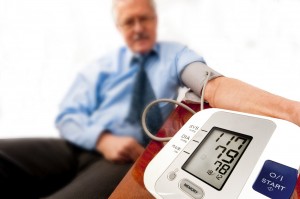You may worry about taking medication to bring your blood pressure down. High blood pressure is when the systolic pressure(top number) is 140 or above or a diastolic pressure(the bottom number) being 90 or above.
Lifestyle plays a crucial role in lowering blood pressure. Here are some lifestyle changes you can make to keep your blood pressure down without medication:
1. Lose extra pounds
Blood pressure increases as weight increases. Even losing 10 pounds can help reduce your blood pressure. The more weight you lose, the lower your blood pressure. Losing weight will also make any blood pressure medications you’re taking more effective. You should speak with your doctor about your target weight and how to achieve it.
2. Exercise Regularly
Regular physical activity can lower your blood pressure by 4 to 9 millimeters of mercury(mm Hg). It is recommended to do at least 30 to 60 minutes of exercise most days of the week. Speak with your doctor about developing an exercise program so he can determine whether you need any restrictions.
3. Eat a healthy diet
The Dietary Approaches to stop Hypertension (DASH) diet is a great way to lower your blood pressure. This diet is rich in whole grains, fruits, vegetables, and low fat dairy products. It can lower your blood pressure by up to 14 mm Hg.
4. Reduce Sodium Intake
A small reduction in sodium can reduce blood pressure by 2 to 8 mm Hg. The recommendations for reducing sodium are:
- Limit sodium to 2,300 milligrams (mg) a day or less.
- A lower sodium level — 1,500 mg a day or less — is appropriate for people 51 years of age or older, and individuals of any age who are African-American or who have high blood pressure, diabetes or chronic kidney disease. (Mayo Clinic)
To decrease sodium in your diet, consider these tips:
Track how much salt is in your diet. Keep a food diary to estimate how much sodium is in what you eat and drink each day.
Eat fewer processed foods. Potato chips, frozen dinners, bacon and processed lunch meats are high in sodium.
Ease into it. If you don’t feel like you can drastically reduce the sodium in your diet suddenly, cut back gradually. Your palate will adjust over time.(Mayo Clinic)
5. Limit the amount of alcohol you drink
In small amounts, alcohol can decrease your blood pressure by 2 to 4 mm Hg. But that effect is lost if you drink too much alcohol-generally more than one drink a day for women and men older than age 65, or more than two a day for men 65 and younger. If you don’t normally drink alcohol, you shouldn’t start drinking as a way to lower your blood pressure. There’s more harm than benefit when drinking alcohol. Alcohol can also reduce the effectiveness of high blood pressure medications.
6. Avoid tobacco products and secondhand smoke
Nicotine in tobacco products can raise your blood pressure by 10 mm Hg or more for up to an hour after you smoke. When you smoke throughout the day your blood pressure will constantly remain high. Also, avoid secondhand smoke which puts you at risk for other health problems.
7. Cut back on caffeine
The role caffeine has on blood pressure is still debatable. Drinking caffeinated beverages can temporarily cause a spike in your blood pressure, but it is not clear whether the effect is temporary or long lasting.
If you want to see if caffeine has an effect on your blood pressure, check your blood pressure within 30 minutes of taking the caffeinated beverage. If your blood pressure increases by 5 to 10 points, you may be sensitive to the blood pressure raising effects of caffeine.
8. Reduce your stress
Stress and anxiety can temporarily increase blood pressure. Take some time to think about what causes you to feel stressed. Once you know what is causing your stress, consider how you can eliminate or reduce the stress.



